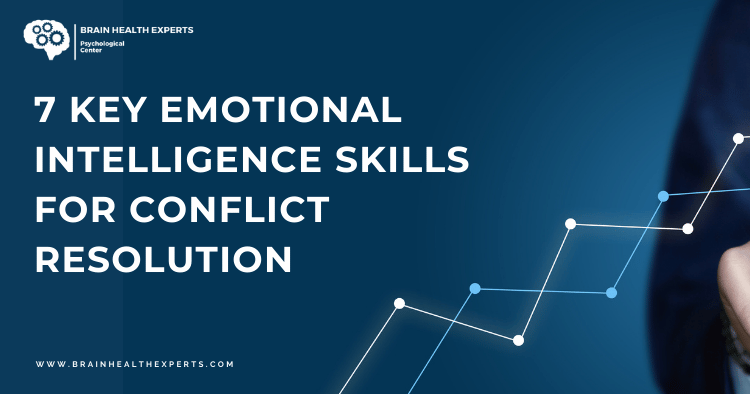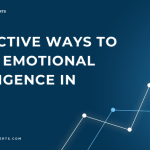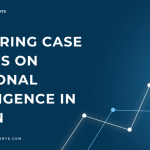- Understanding Emotional Intelligence
- Self-Awareness
- Self-Regulation
- Empathy
- Social Skills
- Motivation
- Conflict Resolution Strategies
- FAQs
Understanding Emotional Intelligence
Emotional Intelligence (EI) is the ability to recognize, understand, and manage our own emotions, as well as the emotions of others. In conflict resolution, EI plays a pivotal role. When we harness emotional intelligence, we can navigate disagreements more effectively, fostering healthier relationships both personally and professionally. According to the American Psychological Association, EI encompasses five key components that greatly aid in resolving conflicts.
As we look into 2024 and beyond, it’s evident that the relevance of emotional intelligence is growing, particularly in workplaces and educational settings. More organizations are introducing emotional intelligence training as a fundamental component of professional development.
Self-Awareness
Self-awareness is the cornerstone of emotional intelligence. It involves recognizing your own emotions and understanding how they influence your thoughts and actions. By being aware of your emotional triggers, you can approach conflicts with a clearer mindset.
Why It Matters in Conflict Resolution
When you know how you feel and why, you can communicate your needs and feelings more effectively during a disagreement. This self-knowledge helps you avoid knee-jerk reactions that could escalate the conflict.
Tips to Enhance Self-Awareness
- Reflective Journaling: Write down your thoughts and feelings regularly to identify patterns in your emotional responses. This practice is echoed in articles such as 10 Tips to Overcome Negative Thought Patterns Today.
- Mindfulness Practices: Engage in mindfulness meditation to increase your awareness of the present moment and your emotional state.
“Self-awareness is the first step in transforming our emotional responses into constructive actions.”
Self-Regulation
Once you are aware of your emotions, the next step is self-regulation. This skill involves managing your emotions and reactions, especially in high-stress situations.
Why It Matters in Conflict Resolution
Self-regulation allows you to remain calm and composed, which is crucial during a conflict. When you can control your emotions, you are less likely to say things you might regret later.
Tips to Enhance Self-Regulation
- Pause Before Reacting: Take a deep breath or count to ten before responding, allowing yourself time to think. This is similar to techniques found in 10 Proven Stress Management Techniques for Daily Relief.
- Practice Stress Management Techniques: Engage in activities like deep breathing, yoga, or exercise to help manage your stress levels.
“Self-regulation is not about suppressing emotions, but rather about understanding and managing them.”
Empathy
Empathy is the ability to understand and share the feelings of others. It is an essential component of emotional intelligence that promotes compassion and understanding in conflict situations.
Why It Matters in Conflict Resolution
Empathy allows you to put yourself in someone else’s shoes, helping you to understand their perspective and emotions. This understanding can diffuse tension and lead to more constructive discussions.
Tips to Enhance Empathy
- Active Listening: Focus fully on the speaker, acknowledging their feelings and responses without interrupting.
- Ask Open-Ended Questions: Encourage others to express themselves more fully by asking questions that require more than a yes or no answer. This technique is highlighted in the article 10 Positive Thinking Techniques to Reduce Stress.
“Empathy is the bridge that connects us to others, allowing for deeper understanding and resolution.”
Social Skills
Social skills encompass the ability to interact well with others, build relationships, and manage social networks. They are vital in facilitating effective communication and collaboration during conflicts.
Why It Matters in Conflict Resolution
Strong social skills help you navigate difficult conversations and foster a cooperative atmosphere. Being able to articulate your thoughts and feelings clearly can lead to a more effective resolution.
Tips to Enhance Social Skills
- Practice Effective Communication: Work on your verbal and non-verbal communication skills to express your thoughts clearly. This aligns with the insights found in 10 Powerful Techniques to Cultivate Positive Mindset.
- Build Rapport: Make an effort to connect with others on a personal level, which can ease tensions during conflicts.
“Strong social skills are the key to unlocking productive dialogue, even in the most challenging situations.”
Motivation
Motivation, in the context of emotional intelligence, refers to the drive to achieve personal and professional goals while maintaining a positive outlook. This intrinsic motivation can help you stay focused during conflicts.
Why It Matters in Conflict Resolution
When you are motivated to resolve a conflict, you’re more likely to seek solutions rather than dwelling on the problems. This proactive approach can lead to more effective outcomes.
Tips to Enhance Motivation
- Set Clear Goals: Identify what you want to achieve from the conflict resolution process.
- Stay Positive: Focus on potential solutions rather than problems to maintain an optimistic outlook. This is akin to the principles laid out in 10 Ways Positive Thinking Fuels Personal Growth Journey.
“Intrinsic motivation drives us not only to resolve conflicts but to grow from them.”
Conflict Resolution Strategies
Employing specific strategies can help leverage emotional intelligence in conflict resolution. Here are some effective methods:
- Collaborative Approach: Work together with the other party to find a mutually beneficial solution.
- Compromise: Be willing to give and take to reach an agreement that satisfies both parties.
- Seek Mediation: If a conflict escalates, consider involving a neutral third party to facilitate the discussion.
Visual Summary
| EI Skill | Importance in Conflict Resolution | Tips for Enhancement |
|---|---|---|
| Self-Awareness | Recognize triggers and emotions | Reflective journaling, mindfulness practices |
| Self-Regulation | Manage emotions and reactions | Pause before reacting, stress management |
| Empathy | Understand others’ feelings | Active listening, open-ended questions |
| Social Skills | Facilitate effective communication | Practice communication, build rapport |
| Motivation | Drive to resolve conflicts | Set clear goals, maintain positivity |
FAQs
Q: What is emotional intelligence?
A: Emotional intelligence is the ability to recognize, understand, and manage emotions, both in oneself and in others.
“Understanding EI is the first step toward leveraging it for better conflict resolution.”
Q: How does emotional intelligence improve conflict resolution?
A: EI helps individuals understand their own and others’ emotions, leading to better communication, empathy, and a collaborative approach to resolving disputes.
Q: Can emotional intelligence be developed?
A: Yes, emotional intelligence can be developed over time through practice and self-reflection. Techniques such as mindfulness, active listening, and stress management can enhance your EI skills.
“Developing emotional intelligence is an ongoing journey, not a destination.”
Q: What are some common emotional triggers in conflicts?
A: Common triggers include criticism, feeling misunderstood, unmet expectations, and past unresolved issues.
By enhancing your emotional intelligence skills, you can transform conflict into an opportunity for growth and understanding. Whether in personal relationships or workplace dynamics, these skills will serve you well in fostering harmonious interactions.
“For further reading on the importance of emotional intelligence in various aspects of life, check out Top 10 Must-Read Books on Emotional Intelligence 2024 and 10 Effective Emotional Regulation Techniques for Daily Life.”





